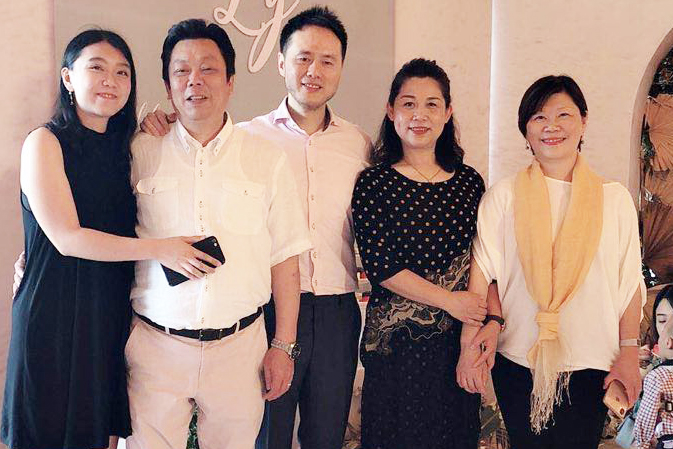Siyi Lin (above left) sits in her Boston apartment working remotely to finish her 1L year at BC Law, and wondering. Wondering at the enormity of Covid-19 and its global path of destruction. Wondering about new visa restrictions that could impede her studies in the next academic year, and the year after that, when she’s scheduled to finish her law degree. Wondering when she will see her family again. And grieving. Grieving for her great aunt, Li Dai, who died of the disease early in the outbreak in Lin’s hometown: Wuhan.
“I think it would be good to talk about my experience as a Wuhanese who is living in the US amid all this craziness,” Lin told BC Law Magazine during a phone interview in late March. “My first reaction was ‘I have to go back home.’ It has been agonizing to be in America during this time.”
Last month, near the beginning of the Law School’s spring break, the coronavirus was detected in California. Lin and her roommate grew worried. They didn’t travel anywhere. Lin recalls it as a time when China’s crisis was being contained and the number of cases was decreasing, but, having borne witness to the nightmare unfolding in Wuhan since January, she was perhaps more alarmed than most by the disease’s arrival in America.
She saw “a huge parallel” between what had happened in Wuhan and what was occurring in the US. Back in class after the weeklong recess, she noticed that colleagues were not, as she put it, caring or worrying enough about the situation. “I was saying, ‘Why are you not panicking like you should be?’ I was like a crazy person.” A few days later, the school shut down.
Life continues for Lin. She worries about her family. She goes to school—remotely, of course—does homework, studies.
She is also angry. Angry at how the Chinese government handled the crisis. The people weren’t made aware of the gravity of the situation early on, and, as has also happened in America, government obfuscation and lack of responsiveness have cost the citizens of both nations dearly. Angry that her great aunt died in isolation. Angry that there weren’t enough caskets to bury her promptly.
And sad. Sad that, far from her country and family, she has had to mourn the passing of her beloved Li Dai—alone.
Photo: From left to right: Siyi Lin, Xi Zhou (her father), Gang Xiong (family friend), Jing Dai (family friend), Wei Gao (her mom) during happier times


